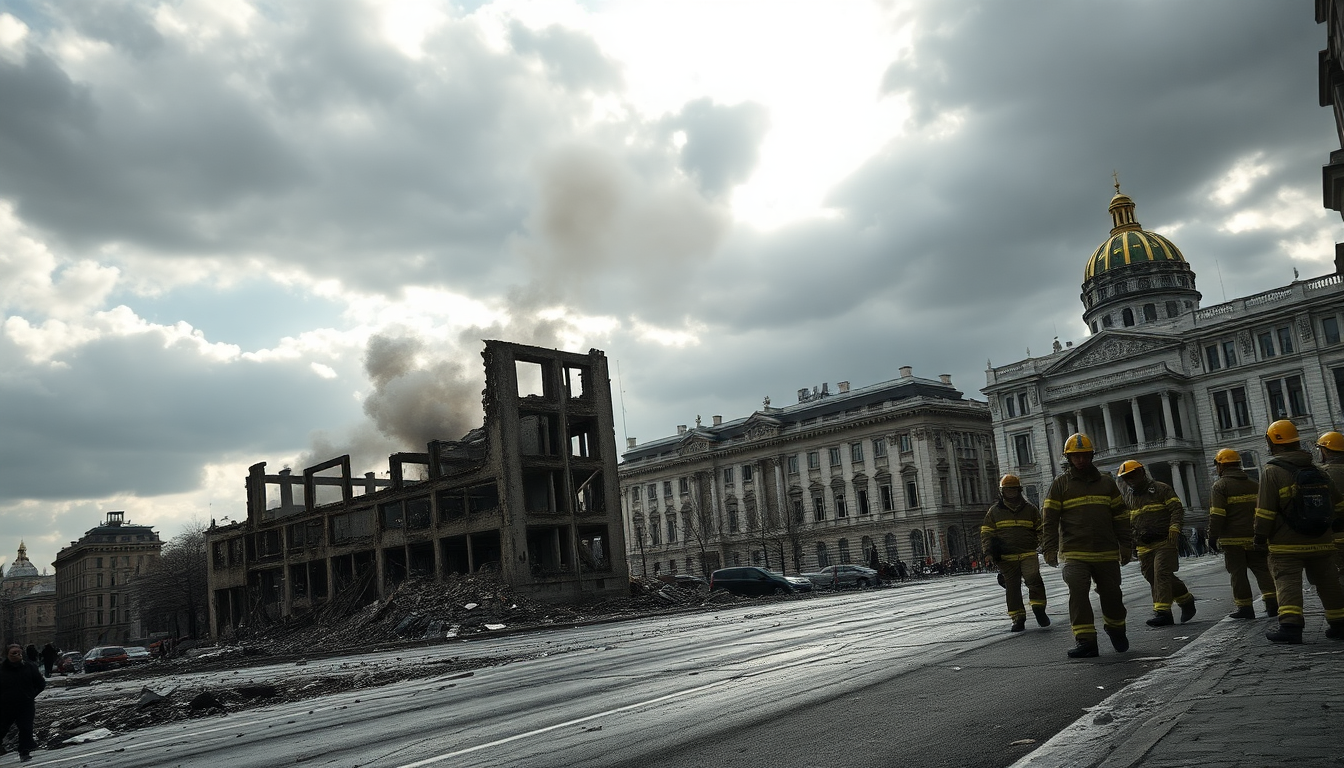Table of Contents
The ongoing conflict between Russia and Ukraine has taken a tragic turn once again. Recently, we learned of the death of a U.S. citizen during missile strikes in Kyiv. This heartbreaking incident not only underscores the dangers faced by foreign nationals in conflict zones but also highlights the broader implications of escalating geopolitical tensions. As we navigate these troubling developments, it’s vital to grasp the gravity of such events and their potential impact on international relations.
Casualties and the Human Impact of War
On a recent Tuesday, a series of drone and missile attacks by Russia on Kyiv led to the tragic loss of an American life. In a press briefing, State Department spokesperson Tammy Bruce confirmed the devastating nature of these strikes, which claimed 15 lives and injured 156 others. With over 440 drones and 32 missiles involved, this assault stands out as one of the deadliest attacks on the Ukrainian capital this year. Bruce expressed deep condolences to the victims and their families, reaffirming the U.S. government’s commitment to ensuring the safety of its citizens abroad.
The situation on the ground in Ukraine is dire. President Volodymyr Zelenskyy reported additional strikes across various regions, including Odesa and Zaporizhzhia. The continuous bombardment serves as a stark reminder of the relentless nature of this conflict, impacting countless civilians and raising international concern. As the world grapples with the implications of such violence, the human cost remains an undeniable reality that we cannot ignore.
The Broader Geopolitical Context
This tragic incident unfolds against a backdrop of heightened tensions and ongoing international diplomacy. With world leaders gathering for the G7 Summit in Canada, discussions about global security and conflict resolution are more crucial than ever. Former U.S. President Donald Trump, attending the summit, voiced his belief that including Russia in discussions could be essential, suggesting that past decisions have contributed to the current level of hostility. His comments reflect a growing sentiment that diplomatic engagement might have alleviated some of the recent escalations.
As these discussions continue, the focus remains on how to navigate the complexities of international relations while prioritizing civilian safety. The U.S. State Department has pledged to offer all possible consular assistance to affected families, reinforcing its commitment to support citizens caught in the crossfire of such crises. The challenge lies in balancing diplomatic efforts with the urgent need for humanitarian considerations, ensuring that the voices of those impacted by conflict are genuinely heard.
Future Implications and Considerations
Looking ahead, the ongoing violence raises critical questions about the future of U.S.-Russia relations and broader implications for global security. The recent attacks and casualties have reignited discussions on military strategies and diplomatic approaches in the region. With peace talks currently stalled, the urgency for resolution is palpable, necessitating a reevaluation of existing policies and engagement strategies.
The international community must remain vigilant in monitoring this situation, advocating for peaceful resolutions, and providing support to those affected by the conflict. The tragic loss of life serves as a poignant reminder of the human cost of war and the need for immediate action to prevent further escalation. As we reflect on these events, it becomes increasingly clear that the path to peace is riddled with challenges, yet it is a path that must be pursued for the sake of all those affected.


